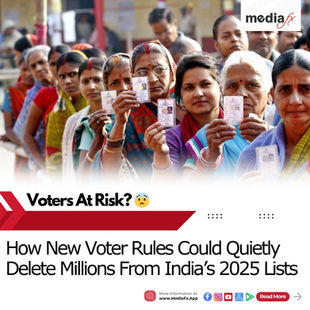"😱 Young Indians in US Face Self-Deportation Dilemma at 21! 🇺🇸🇮🇳"
- MediaFx

- Mar 7, 2025
- 2 min read
TL;DR: Thousands of young Indians in the U.S., who arrived as minors on H-4 visas, are facing the prospect of self-deportation upon turning 21 due to aging out of their dependent visa status. This situation, exacerbated by immigration policy changes and green card backlogs, is pushing many to consider leaving the U.S. voluntarily.

The 'Aging Out' Conundrum
Many Indian families move to the U.S. with dreams of a better future, often on H-1B visas, bringing their children on H-4 dependent visas. However, these 'Documented Dreamers' face a ticking clock. Once they hit 21, they lose their dependent status, a process known as "aging out." This forces them to seek alternative visa options or face self-deportation.
Policy Shifts and Uncertainty
Recent changes in immigration policies have added to the uncertainty. Previously, there was a two-year grace period post-aging out to adjust their status. Now, that safety net is gone, leaving many scrambling for solutions.
Green Card Backlogs: A Major Hurdle
The U.S. employment-based green card system is notorious for its backlogs, especially for Indian immigrants. As of March 2023, nearly 134,000 Indian children were projected to age out before their families could secure green cards. This backlog means many remain in visa limbo for years, if not decades.
Considering Other Shores
With the American Dream fading, many are eyeing countries like Canada and the UK, which offer more flexible visa policies. These nations are becoming attractive alternatives for those seeking stability and opportunities.
Community Voices
Advocacy groups like Improve The Dream are amplifying the voices of these young individuals, pushing for legislative changes to provide a clear path to citizenship and prevent future 'aging out' scenarios.
MediaFx Opinion
This predicament highlights systemic issues within immigration policies that disproportionately affect working-class families. It's a stark reminder of the need for equitable reforms that prioritize human rights and provide fair opportunities for all, regardless of their background.













































